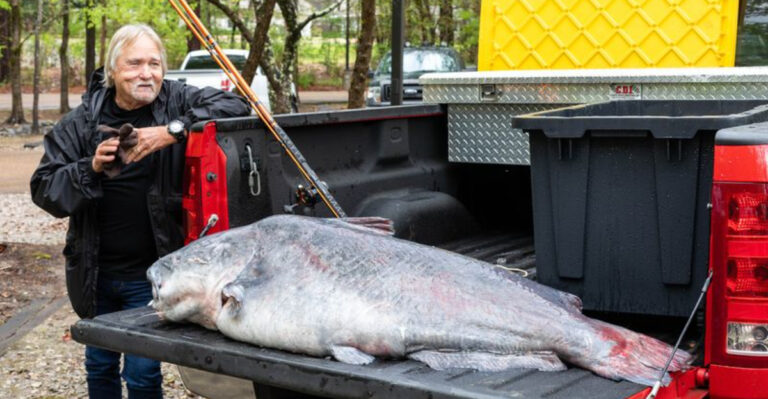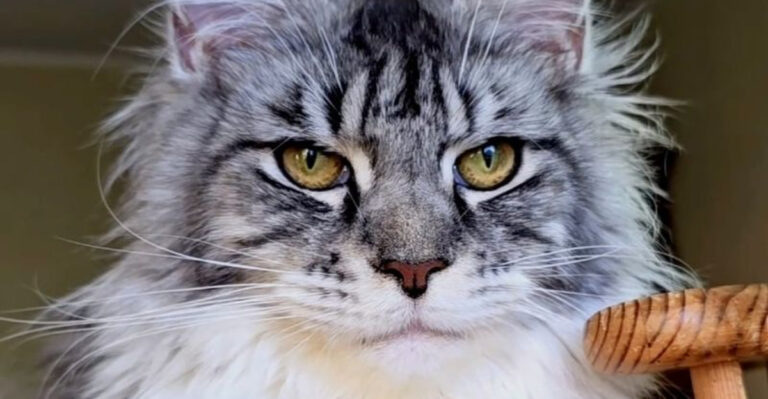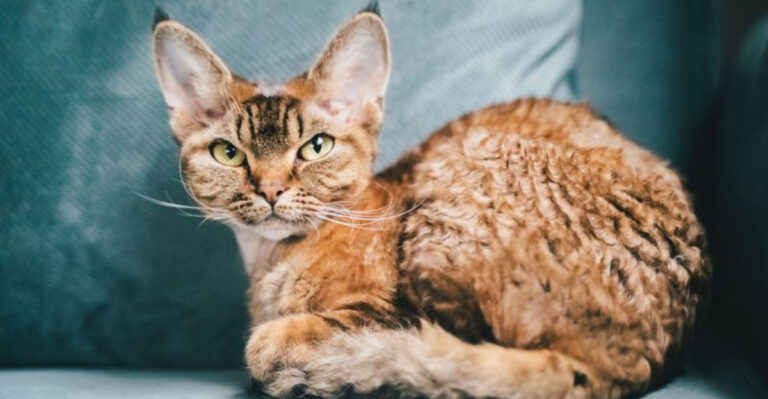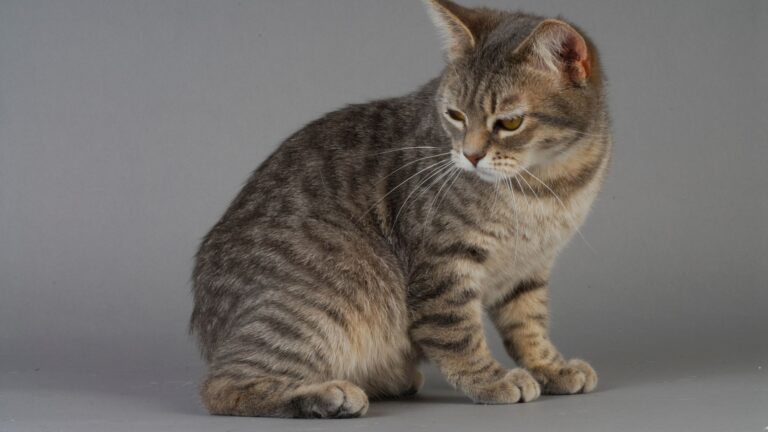Everything You Should Know About Bearded Dragon Teeth
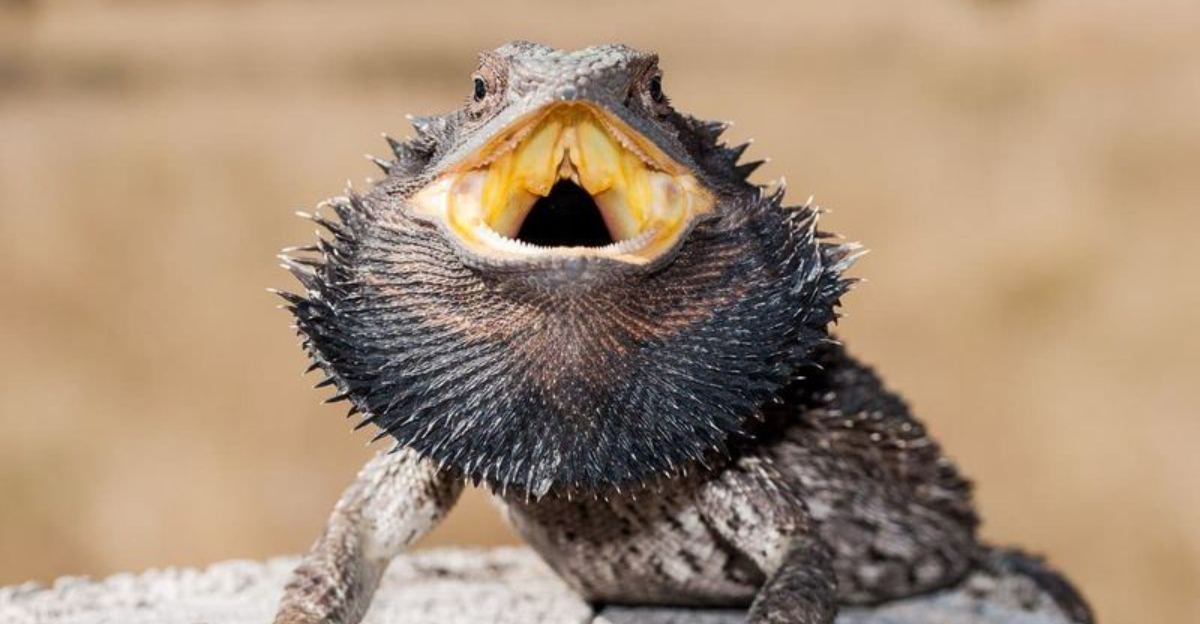
Bearded dragons are fascinating reptiles with unique dental characteristics that play a crucial role in their health and survival. Many new owners don’t realize these lizards have specialized teeth designed for their omnivorous diet and lifestyle.
Understanding your bearded dragon’s dental anatomy can help you spot potential health issues early and ensure proper care for your scaly friend.
Baby Dragons Are Born With Teeth
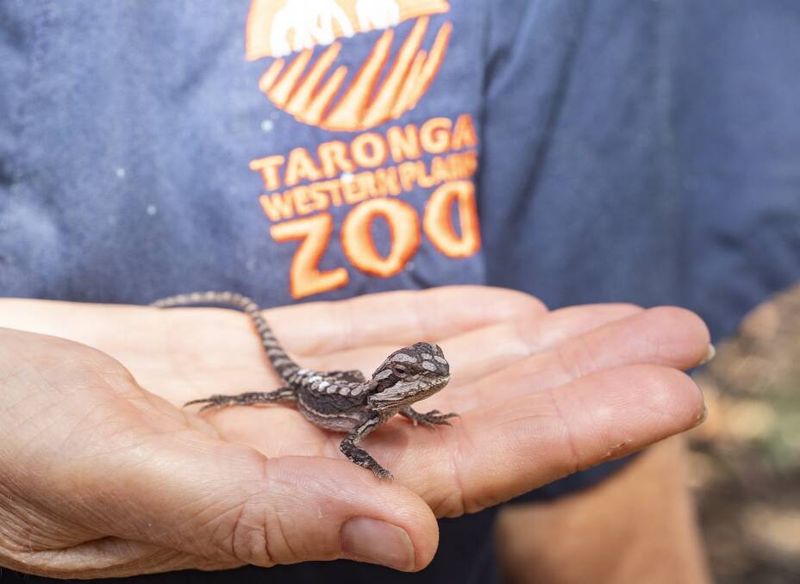
Bearded dragons enter the world fully equipped with a set of tiny, sharp teeth! These little chompers are present from the moment they hatch, allowing baby beardies to immediately start munching on insects and vegetation.
Unlike human babies who develop teeth later, bearded dragons need their teeth right away for survival in the wild. Their first set of teeth might be small, but they’re remarkably effective for capturing fast-moving prey like crickets.
These teeth will continue to develop as the dragon grows, becoming more prominent and specialized with age. A hatchling’s complete dental arsenal is just one of many evolutionary advantages that help these reptiles thrive.
They Have Specialized Tooth Types
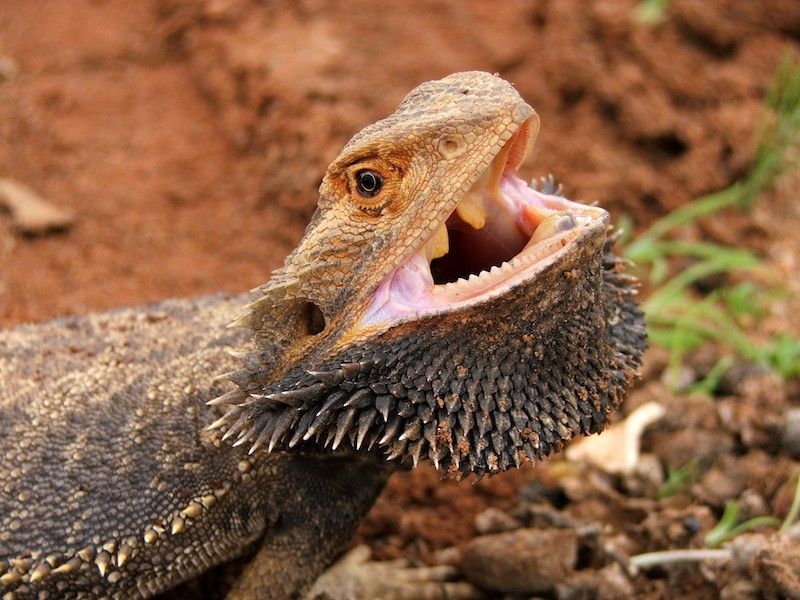
Bearded dragons possess what scientists call acrodont dentition – their teeth are fused directly to the jawbone rather than sitting in sockets. This unique dental structure includes three distinct tooth types, each serving different functions.
The front teeth (incisors) help grab and hold food. Flanking these are the longer canine-like teeth for tearing and puncturing tough foods. At the back, you’ll find the tricuspid molars which work perfectly for grinding vegetation.
This specialized arrangement makes beardies highly efficient omnivores, equally capable of processing crunchy insects and fibrous plant matter. Their dental diversity is a testament to their adaptability in various environments.
Teeth That Don’t Regrow
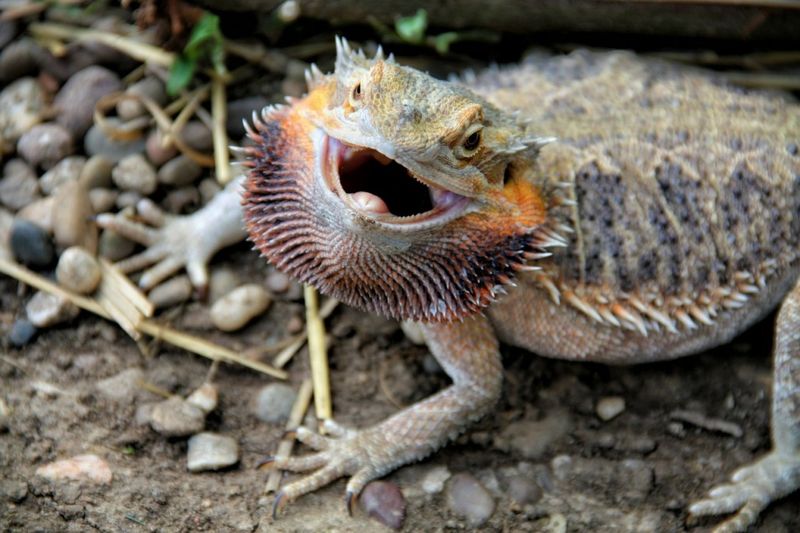
Unlike some reptiles that continuously replace teeth throughout their lives, bearded dragons get just one set to last their entire lifetime. Once a tooth breaks or falls out, it’s gone for good – there’s no tooth fairy for beardies!
This permanent dentition means dental care is especially important for these reptiles. Broken teeth can’t be replaced naturally, which might affect their ability to eat properly as they age.
Wild beardies typically wear down their teeth gradually over time from eating rough vegetation and hunting. In captivity, providing the right balance of soft and crunchy foods helps maintain proper tooth wear without causing damage to these irreplaceable dental structures.
Dental Disease Warning Signs
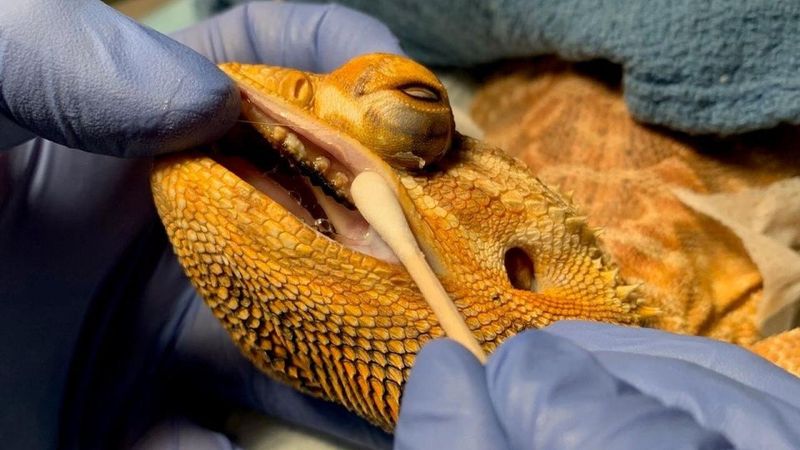
Yellow or black discoloration on your beardie’s teeth signals potential dental problems that need attention. Healthy teeth should appear white to slightly off-white, maintaining consistent coloration throughout.
Watch for behavioral changes too – if your dragon suddenly stops eating crunchy foods or seems to have difficulty chewing, dental pain might be the culprit. Some dragons may paw at their mouth or tilt their head while eating when experiencing tooth discomfort.
Swollen gums, excessive drooling, or visible plaque buildup require veterinary care. Left untreated, dental issues can progress to mouth rot (infectious stomatitis), a serious condition that can spread to the jaw bone and become life-threatening.
Mouth Rot Requires Immediate Attention
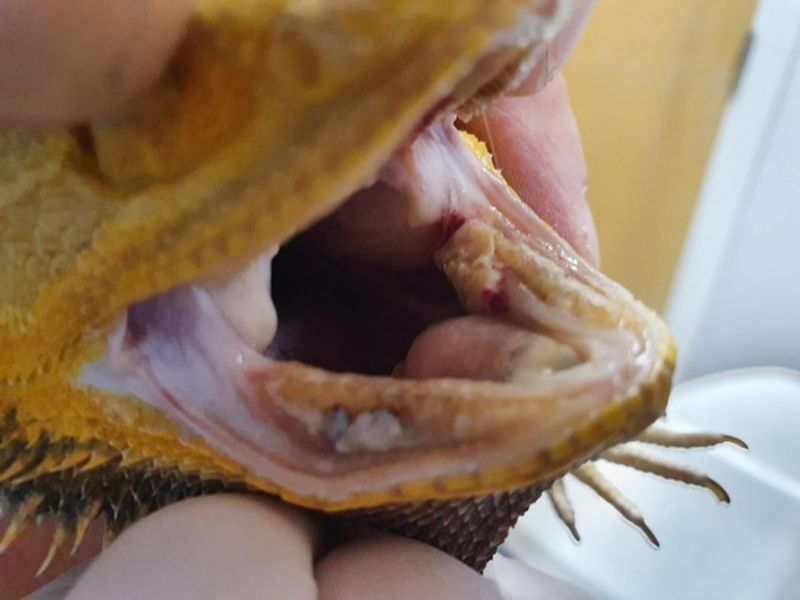
Mouth rot (infectious stomatitis) represents the most serious dental condition for bearded dragons. This painful bacterial infection begins in the gums but can quickly spread to surrounding tissues and even the jawbone if left untreated.
The warning signs include yellow or cheesy discharge in the mouth, bleeding gums, and obvious discomfort when eating. Your dragon might also exhibit decreased appetite, lethargy, and excessive mucus around the mouth area.
This condition requires veterinary intervention – typically antibiotics and sometimes surgical cleaning of infected areas. Prevention is far easier than treatment, so regular mouth checks and proper husbandry practices are essential for keeping your beardie’s dental health in top shape.
Diet Affects Dental Health
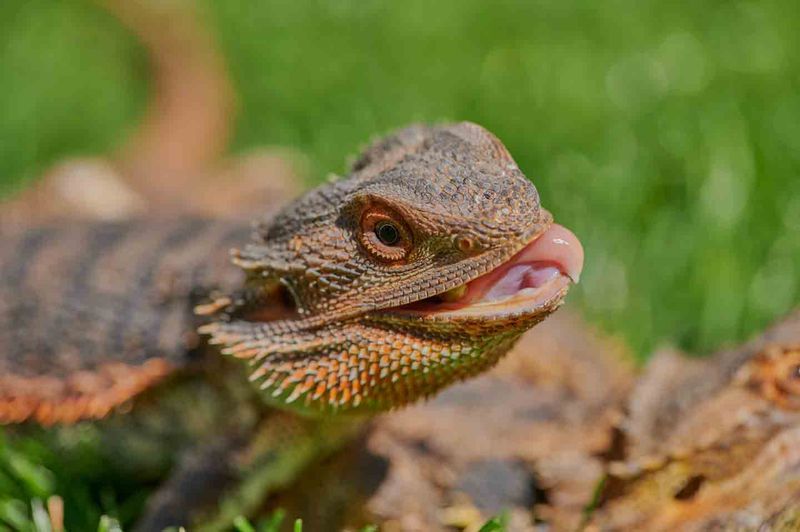
What your bearded dragon eats directly impacts its dental condition. A proper diet helps naturally clean teeth and strengthen jaw muscles through regular chewing action.
Crunchy vegetables like bell peppers and carrots act as natural toothbrushes, scraping away soft debris as your dragon chews. The chitin exoskeletons of insects like crickets and dubia roaches provide similar cleaning benefits while exercising those jaw muscles.
Conversely, a diet too heavy in soft foods can lead to plaque buildup and weakened jaw muscles. Balance is key – offering a variety of textures helps maintain dental health naturally. Just like with humans, prevention through proper nutrition is the most effective dental care strategy for your scaly friend.
Checking Your Dragon’s Teeth
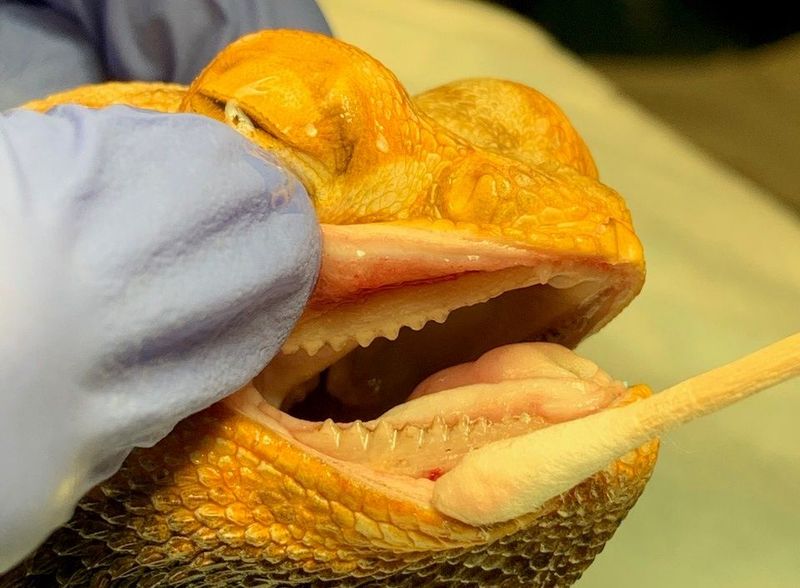
Regular dental check-ups at home can catch problems before they become serious. Gently open your dragon’s mouth by pressing the soft spot at the corners of the jaw – most beardies will gape in response to this gentle pressure.
Look for teeth that appear uniform in color (white to off-white) without dark spots, yellowing, or visible cracks. The gums should be pink rather than red or white, without swelling or bleeding.
Make this examination part of your weekly routine, perhaps during bath time when your dragon is typically more relaxed. Taking quick photos can help you track changes over time – what might seem subtle day-to-day can become obvious when comparing images months apart.
Calcium Matters For Strong Teeth
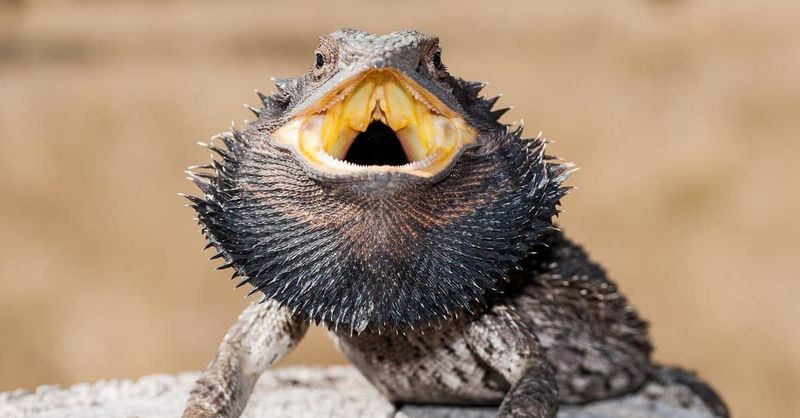
Calcium doesn’t just strengthen bones – it’s crucial for maintaining healthy teeth in bearded dragons. Without sufficient calcium, dragons can develop weakened dental structures prone to fractures and disease.
Proper supplementation involves dusting feeders with calcium powder 3-5 times weekly for juveniles and 1-2 times for adults. UVB lighting is equally important as it enables vitamin D3 synthesis, which allows proper calcium absorption and utilization.
Signs of calcium deficiency include soft jaw (rubber jaw), tremors, and weakened teeth that may break easily during feeding. A balanced diet including calcium-rich greens like collard greens and turnip greens, combined with proper supplementation, keeps those teeth strong for a lifetime of healthy chomping.
Shedding Affects The Mouth Too
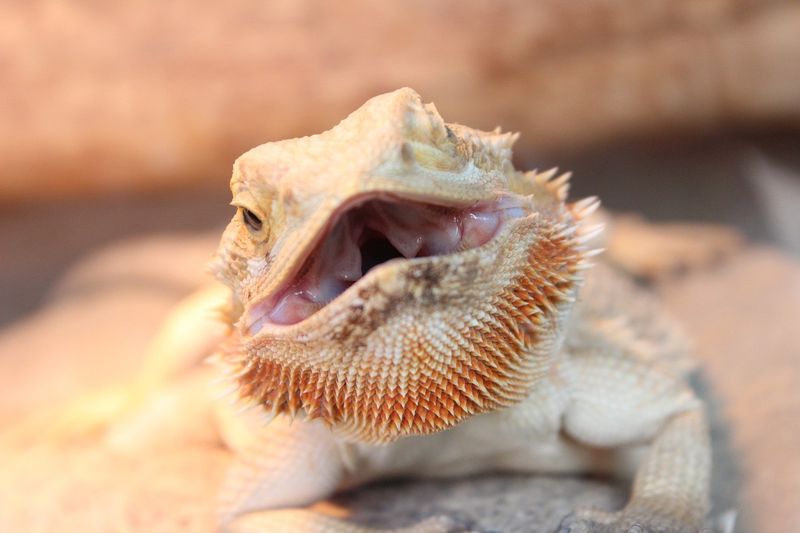
Many owners don’t realize that bearded dragons shed the skin inside their mouths just like they shed their external skin! During a shed cycle, you might notice your dragon seems less interested in food or chews more carefully.
The process is completely normal but can sometimes cause temporary discomfort. You might spot whitish tissue in the mouth that resembles mouth rot but is actually just shedding skin. The difference? Shedding tissue doesn’t have the foul smell or yellow pus associated with infection.
Never try to pull shedding skin from your dragon’s mouth – this can cause injury and infection. Instead, offer slightly softer foods during shedding periods and ensure proper humidity levels to facilitate the natural process.
Veterinary Dental Care Options
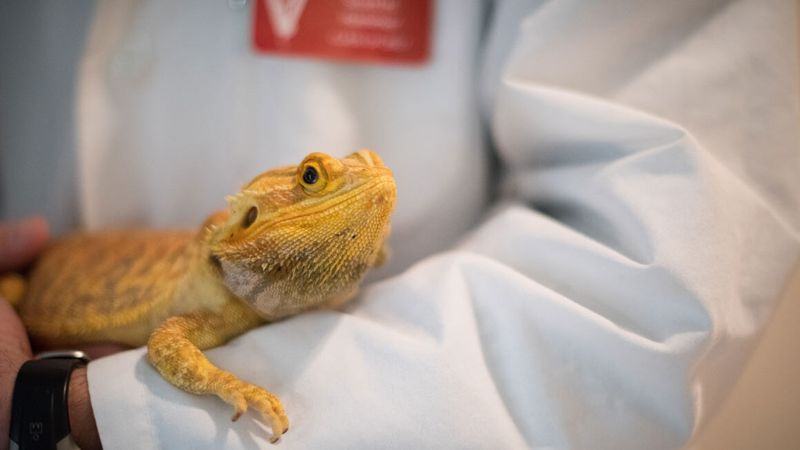
When dental problems arise, exotic pet veterinarians can provide specialized care for your bearded dragon. Professional cleaning might involve careful scaling to remove plaque buildup while your dragon is under light sedation.
For more serious issues like abscesses or severely infected teeth, surgical intervention may be necessary. Unlike with mammals, reptile teeth can’t be filled or capped – problematic teeth typically need removal to prevent further infection.
Finding a reptile-savvy vet before problems occur is crucial, as not all veterinarians have experience with bearded dragon dentistry. Ask potential vets about their reptile dental experience and whether they have the proper equipment for these specialized procedures. Prevention remains the best approach, but knowing your options provides peace of mind.

